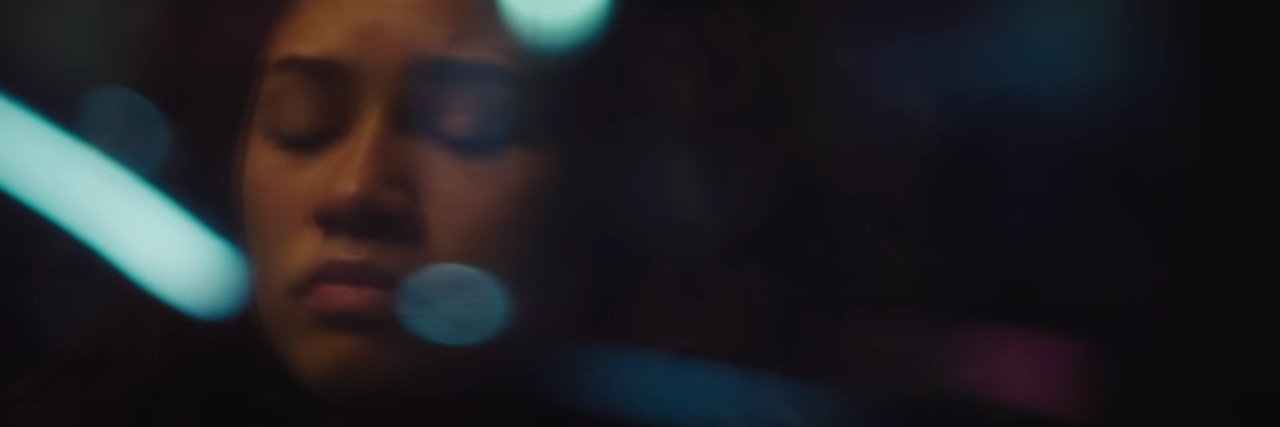3 Moments from the Latest 'Euphoria' Episode That Humanized Addiction
Editor's Note
If you’re struggling with self-judgment, check out The Mighty’s No Shame group. It’s a safe space to share how you’re feeling with other people who get it.
“Trouble Don’t Last Always” is a fitting title for the recent episode of “Euphoria” which finds Zendaya’s character, Rue, coming to terms with the impact of her addiction. Season one ended with the demise of Rue and Jules’s relationship and Rue taking drugs once more. A major part of the recent episode was how Ali, played by Colman Domingo, met Rue with grace, compassion, and understanding regarding Rue’s addiction. The two sit across from each other in a diner, in a display of brokenness, vulnerability and reckoning that spoke to me in many ways.
While I don’t live with an addiction, I am predisposed to several. I was raised by loving people who struggled with alcoholism and gambling addiction. I didn’t realize the impact of this until I attended an Al-Anon meeting years ago. It was eye opening to hear stories of pain and hurt not dissimilar to my own.
I’ve been working on reconciling with my loved ones over the past few years, working to mend hurts and forgive. It’s difficult to see life through their eyes, to not be overcome with anger by their decisions, and to give them passes for the lies, the deception and in some cases, the abandonment. In so many ways, this trauma gets passed down. I’ve taken on some traits I’m not proud of, I’ve had to unlearn unhealthy relationship habits and I’ve hurt folks along the way too. It’s never one sided and it is wholly complex.
Rue and Ali’s conversation served as a necessary reminder of what life can be like in the shoes of someone who’s caught in the clutch of addiction. I was blown away by how well the actor’s performances and dialogue humanized what’s often only stigmatized and criminalized.
Here are three especially hard-hitting and salient moments from the episode:
1. Learning Ali’s story
Rue is surprised to learn that Ali could have caused anyone any real harm, or have done worse things while under the influence as she has. But, in a display of great vulnerability, Ali shares about his abusive relationship with his wife, how he was sober, then relapsed, then sober again and how it’s all impacted him in the present. Ali makes it a point to remind Rue that he’s not perfect, none of us are.
2. The message of forgiveness
Rue’s guilt over having caused her mother emotional and physical pain over the years is clearly weighing on Rue. She doesn’t feel like a worthy daughter or sister or person for that matter, but Ali remains steady in his conviction that she can be forgiven, that others – including himself – have done worse things, and that there’s life for Rue yet.
3. An invitation to faith
Ali invites Rue to “believe in the poetry” because there’s meaning in this life. At my lowest points in my life, I’ve found myself at a place where my intelligence ends and my faith begins. I remember experiencing panic attacks in undergraduate school and experiencing drastic lows in my mood. Fortunately, prayer and my faith community were there for me to lean on. I’ve had family and friends share the importance faith plays in their own recovery. Believing in something much bigger than them and taking rest in that, has made all the difference for them. It puts their struggles into context and is a constant reminder that their addiction doesn’t have to be the god of their life.
Addiction can disrupt lives, ruin marriages and destroy families. Often, this is where we land when seeing addiction portrayed on television or in movies, which is why I appreciate so much of what Euphoria typically covers, and what it specifically highlighted in the recent episode.
Image courtesy of Euphoria’s YouTube Channel

